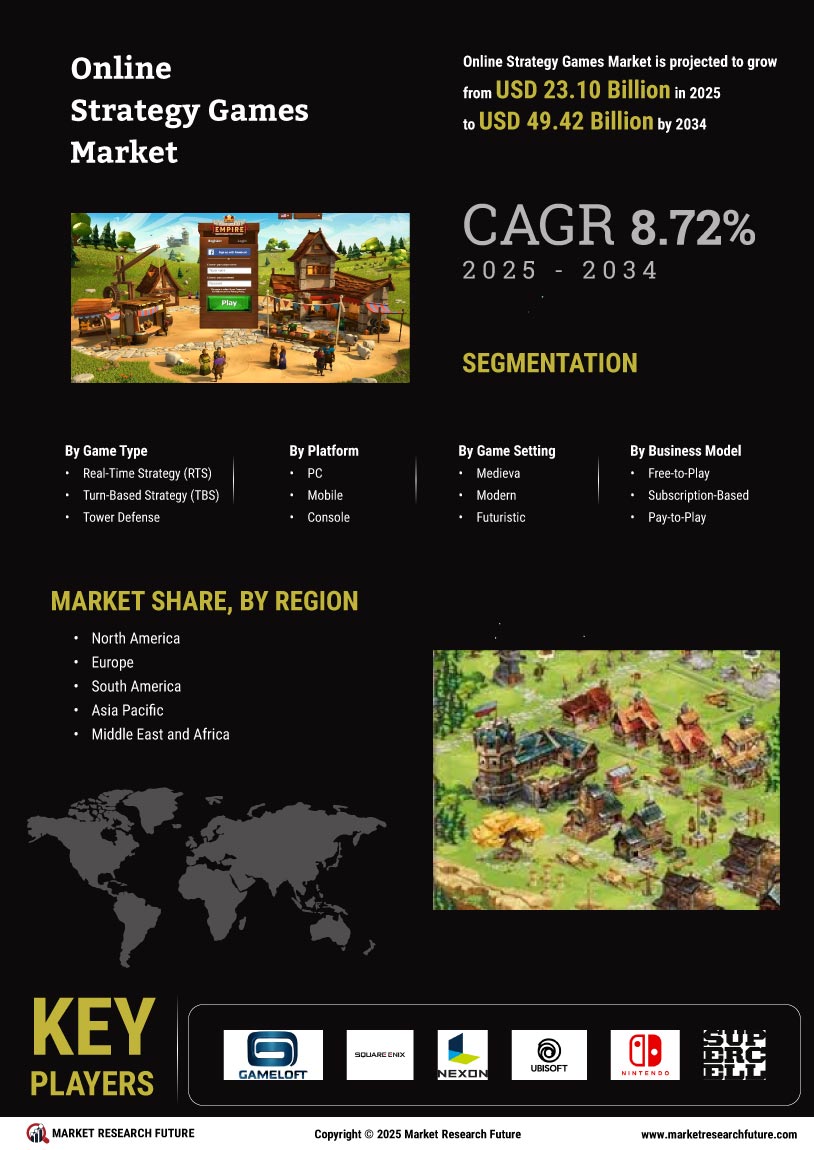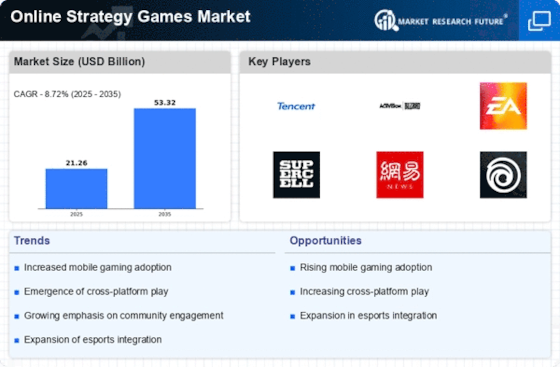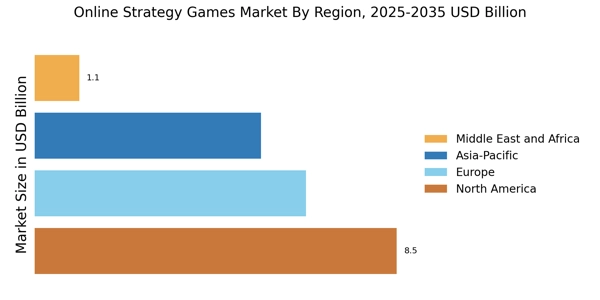Expansion of Mobile Platforms
The Online Strategy Games Market is witnessing a significant expansion driven by the proliferation of mobile platforms. With over 3 billion smartphone users worldwide, mobile gaming has become a dominant force, accounting for nearly 50% of the total gaming revenue. This shift allows strategy games to reach a wider audience, including casual gamers who prefer mobile devices for their gaming experiences. Developers are increasingly optimizing their titles for mobile play, ensuring accessibility and convenience. Consequently, the Online Strategy Games Market is likely to see a rise in user engagement and retention, as players can enjoy their favorite strategy games anytime and anywhere.
Emergence of Subscription-Based Models
The Online Strategy Games Market is witnessing the emergence of subscription-based models, which offer players access to a library of games for a monthly fee. This model has gained traction as it provides gamers with a cost-effective way to explore various titles without the need for individual purchases. By 2025, it is estimated that subscription services could account for over 20% of the gaming revenue. This shift not only benefits players but also encourages developers to create more content, as they are incentivized to keep subscribers engaged. Consequently, the Online Strategy Games Market is likely to experience sustained growth as subscription models become increasingly popular among gamers.
Growing Demand for Cross-Platform Play
The Online Strategy Games Market is experiencing a growing demand for cross-platform play, which allows players to engage with others regardless of their gaming device. This trend is particularly appealing to strategy game enthusiasts who often seek to connect with friends and rivals across different platforms. As of 2025, approximately 70% of gamers express a preference for games that support cross-platform functionality. This demand encourages developers to create more inclusive gaming environments, thereby enhancing player satisfaction and loyalty. The Online Strategy Games Market stands to gain from this trend, as it fosters a larger, more diverse player base and increases the longevity of games.
Rise of E-Sports and Competitive Gaming
The Online Strategy Games Market is experiencing a notable surge due to the rise of e-sports and competitive gaming. This phenomenon has transformed casual gaming into a spectator sport, attracting millions of viewers and participants. In 2025, the e-sports market is projected to reach approximately 1.5 billion USD, with strategy games playing a pivotal role in this growth. The competitive nature of these games fosters community engagement and encourages developers to create more sophisticated and balanced gameplay experiences. As a result, the Online Strategy Games Market is likely to benefit from increased investment and sponsorship opportunities, further enhancing its visibility and appeal to a broader audience.
Increased Investment in Game Development
The Online Strategy Games Market is benefiting from increased investment in game development, as both established companies and new entrants seek to capitalize on the growing popularity of strategy games. In 2025, the global gaming industry is expected to surpass 200 billion USD, with a significant portion allocated to the development of innovative strategy titles. This influx of capital enables developers to explore advanced technologies, such as artificial intelligence and machine learning, to enhance gameplay experiences. As a result, the Online Strategy Games Market is likely to see a surge in high-quality titles that attract both casual and hardcore gamers, further driving market growth.

















